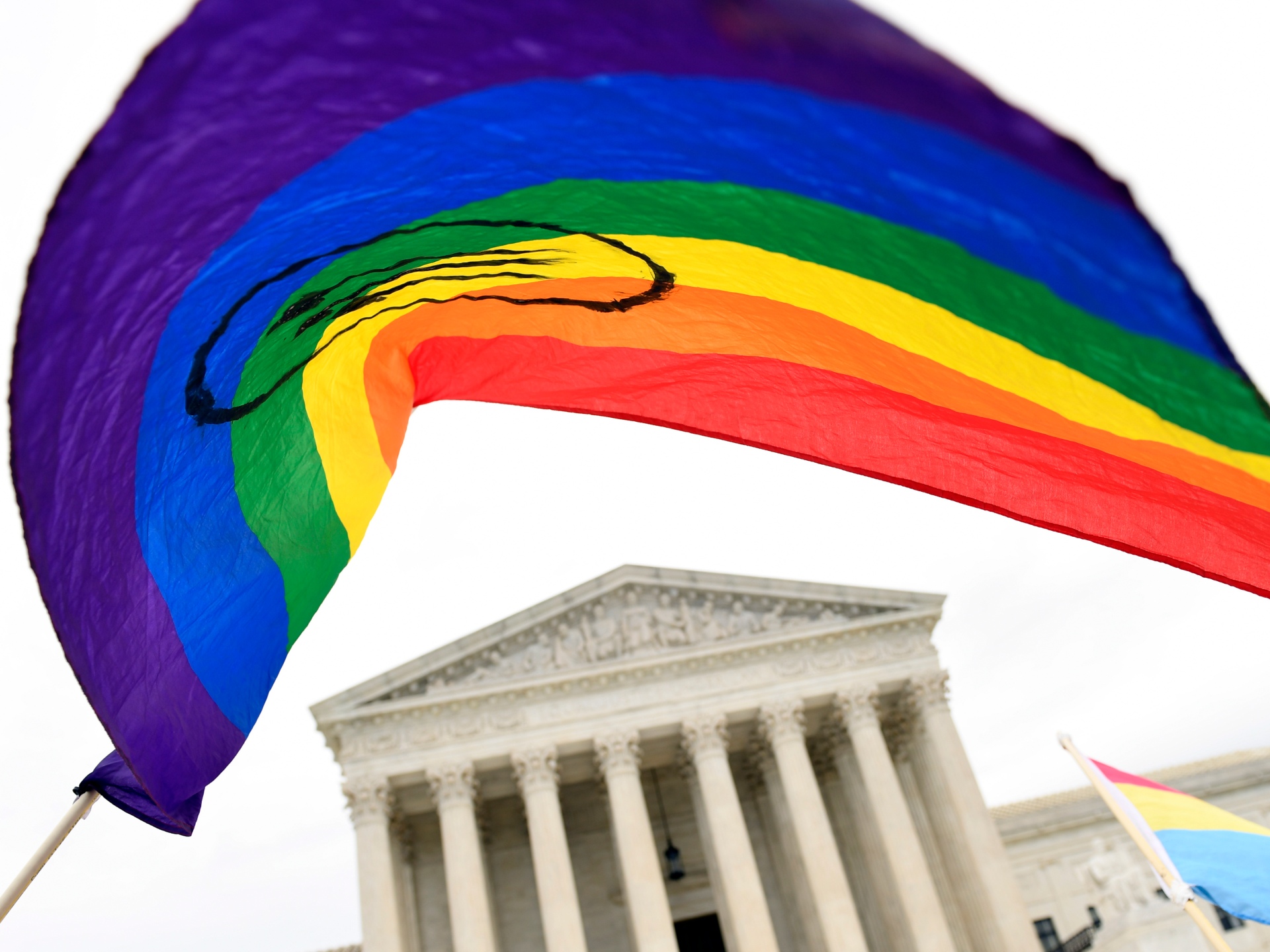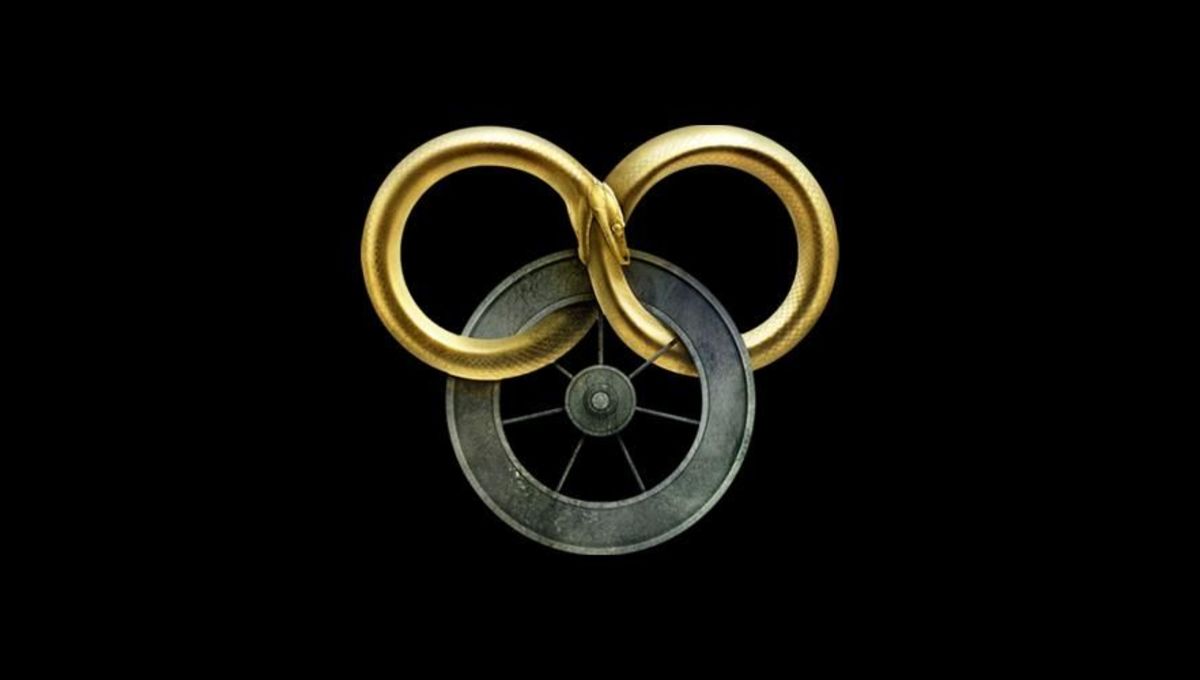- cross-posted to:
- news@beehaw.org
- cross-posted to:
- news@beehaw.org
Ok if that’s the road they want to take then they will lose a lot more than they gain.
sides with business owner who refused to provide services for same-sex wedding, citing freedom of speech.
Um, “freedom of speech” would be to say that you don’t support same-sex marriage, but refusal to provide a service based on the fact that you don’t agree with same-sex marriage seems like flat out discrimination.
I think the argument is essentially that the alternative is forcing the person to literally “say” (write) something (code) and they have the freedom not to write things they disagree with. It seems like a very narrow ruling and it will be interesting to see if it is kept that way, I doubt it. I also may not understand all of the nuance.
I think of a bakery case, would the ruling mean they can’t refuse to bake a cake, which is not speech, but they could refuse to write “happy pride” on a cake, or does it now mean that they can refuse all forms of service. I don’t think it does, but it wasn’t really a question before.
One of the most interesting parts to me was an article I saw yesterday, where one of the supposed gay men who requested the website was contacted and said he was straight, married with a kid, and had never asked for such a thing. It seems like the case may have been invented out of thin air to create a precedent. (Apparently someone posted it farther down)
Just found this related article https://www.lgbtqnation.com/2023/06/hate-group-may-have-faked-key-argument-in-lgbtq-supreme-court-case-and-they-might-win/
Nice to know that Supreme Court makes decisions based on fucking fabrications and delusions.
According to court filings from the plaintiff, Stewart contacted Smith in September 2016 about his wedding to Mike “early next year.” He wrote that they “would love some design work done for our invites, placenames etc. We might also stretch to a website.” Stewart included his phone number, email address, and the URL of his own website—he was a designer too, the site showed.
This week, I decided to call Stewart and ask him about his inquiry.
It took just a few minutes to reach him. I assumed at least some reporters over the years had contacted him about his website inquiry to 303 Creative—his contact information wasn’t redacted in the filing. But my call, he said, was “the very first time I’ve heard of it.”
Yes, that was his name, phone number, email address, and website on the inquiry form. But he never sent this form, he said, and at the time it was sent, he was married to a woman. “If somebody’s pulled my information, as some kind of supporting information or documentation, somebody’s falsified that,” Stewart explained. (Stewart’s last name is not included in the filing, so we will be referring to him by his first name throughout this story.)
This is almost more distressing on a few levels than the original story…
So as a queer person, does this mean I can choose not to service Christians at my business?
Because somehow I doubt the Supreme Court would back me up there.
It confuses me religion (an unscientific idea) is even a protected class versus an immutable characteristic like skin color, gender, sexuality, disability etc.
Religious privilege is getting an invite to the meeting where this stuff was decided
Because if it isn’t then millions of people in this country will openly be discriminated against because of their religion.
I’m Jewish. Do I really need to explain why I think having protections for my religious beliefs is a good idea? There are more LGBT people than Jews in America. We are a small minority who has historically been heavily discriminated against, and that discrimination is ongoing right now. Antisemitism has gotten significantly more out in the open over the last decade. I can confidently state that had I not been protected by laws, I likely wouldn’t have gotten into college, gotten my first job, or had many of the opportunities that I’ve had in life. I know friends who have been told to their faces that an employer didn’t want to hire them because they were jews.
I don’t really care if religion is “unscientific,” for people who are religious is a critical part of who they are and, more importantly, a lot of other people (religious and not) assign it just as much importance and will happily discriminate against, ostracize, and even kill people for being the “wrong” religion if allowed to do so. I can’t just “give up” by Jewishness because it’s a deeply ingrained part of who I am, and asking me to “just stop” is frankly as offensive as telling a gay person to “just stop” believing they are gay. And, more importantly, even if I completely rescinded all of my belief in my religious beliefs AND stopped doing all Jewish activities, got rid of all my Jewish paraphernalia, converted to Christianity and lived openly as a Christian, there are still people who would consider me Jewish and discriminate against me simply for having Jewish parents.
YOU might not like religion, and I completely understand why so many people feel that way, but removing religions from being protected classes Isa really great way to guarantee millions of people get discriminated against every single day.
I’m also Jewish. Do I get to outright deny building websites for devout Muslims?
It’s a security blanket that large blocks of society have yet to grow out of, unfortunately. Like trying to phase a toddler out of their binky, suggesting laying it aside is likely to result in tantrums.
XD OMG Yess!! 😄😄😂😂😂
Because if it isn’t then millions of people in this country will openly be discriminated against because of their religion.
I’m Jewish. Do I really need to explain why I think having protections for my religious beliefs is a good idea? There are more LGBT people than Jews in America. We are a small minority who has historically been heavily discriminated against, and that discrimination is ongoing right now. Antisemitism has gotten significantly more out in the open over the last decade. I can confidently state that had I not been protected by laws, I likely wouldn’t have gotten into college, gotten my first job, or had many of the opportunities that I’ve had in life. I know friends who have been told to their faces that an employer didn’t want to hire them because they were jews.
I don’t really care if religion is “unscientific,” for people who are religious is a critical part of who they are and, more importantly, a lot of other people (religious and not) assign it just as much importance and will happily discriminate against, ostracize, and even kill people for being the “wrong” religion if allowed to do so. I can’t just “give up” by Jewishness because it’s a deeply ingrained part of who I am, and asking me to “just stop” is frankly as offensive as telling a gay person to “just stop” believing they are gay. And, more importantly, even if I completely rescinded all of my belief in my religious beliefs AND stopped doing all Jewish activities, got rid of all my Jewish paraphernalia, converted to Christianity and lived openly as a Christian, there are still people who would consider me Jewish and discriminate against me simply for having Jewish parents.
YOU might not like religion, and I completely understand why so many people feel that way, but removing religions from being protected classes Isa really great way to guarantee millions of people get discriminated against every single day.
Edit: My app decided to post this multiple times, I’m cleaning them up, sorry for that yall. Didn’t mean to spam 4 identical posts…
Because if it isn’t then millions of people in this country will openly be discriminated against because of their religion.
I’m Jewish. Do I really need to explain why I think having protections for my religious beliefs is a good idea? There are more LGBT people than Jews in America. We are a small minority who has historically been heavily discriminated against, and that discrimination is ongoing right now. Antisemitism has gotten significantly more out in the open over the last decade. I can confidently state that had I not been protected by laws, I likely wouldn’t have gotten into college, gotten my first job, or had many of the opportunities that I’ve had in life. I know friends who have been told to their faces that an employer didn’t want to hire them because they were jews.
I don’t really care if religion is “unscientific,” for people who are religious is a critical part of who they are and, more importantly, a lot of other people (religious and not) assign it just as much importance and will happily discriminate against, ostracize, and even kill people for being the “wrong” religion if allowed to do so. I can’t just “give up” by Jewishness because it’s a deeply ingrained part of who I am, and asking me to “just stop” is frankly as offensive as telling a gay person to “just stop” believing they are gay. And, more importantly, even if I completely rescinded all of my belief in my religious beliefs AND stopped doing all Jewish activities, got rid of all my Jewish paraphernalia, converted to Christianity and lived openly as a Christian, there are still people who would consider me Jewish and discriminate against me simply for having Jewish parents.
YOU might not like religion, and I completely understand why so many people feel that way, but removing religions from being protected classes Isa really great way to guarantee millions of people get discriminated against every single day.
No, such daily stuff doesn’t harm you, and even has the virtue of people you’d not want to depend on being more likely to show their true colors.
EDIT: I too have some Jewish relation and have thought of this.
I think the point of this discussion is to showcase the hypocrisy by example.
So, you’ve hit the nail on the head.
If you’re not super tired up with being American for the near future, do it and have an exist strategy to e.g. Canada.
It means that if a Christian asks you to design a website with messages that violate your religious beliefs then you can refuse. If I as a satanist believe that a woman’s right to abortion is sacred then I can refuse to design a website with an anti-abortion message. I can’t simply refuse to design a website for a Christian. Not saying I agree with the ruling, just explaining what it means.
The whole idea of some things being protected and some not is very wrong. Rights should be a wildcard. That’s the right of private discrimination as ancaps see it.
There are two rights that the courts have traditionally protected, the right to say (or not say) what you want, and the right to be free of discrimination.
In this case, the two rights were in conflict. The court decided that the first one takes precedence.
That’s to be free of discrimination by the state, which usually will treat your obligations independently of your rights.
While private discrimination is always something in the grey area. By private discrimination I mean both a banner saying “<any grouping at all> are not welcome here” and having face control (something quite normal for night clubs, and you’ll also pick your tenants if you rent out).
It’s not really a gray area. The Civil Rights Act explicitly prohibits discrimination against protected class by most businesses that are open to the public, like stores, restaurants, bars, and hotels.
If you’re not a part of a protected class, or your particular business is not covered by the Civil Rights Act, then you are free to discriminate.
So to take your example, if a bar said “Irish not welcome here” then they would absolutely be violating the law.
The main change recently is that certain businesses that produce original expression, such as web designers, can no longer be covered by the Civil Rights Act because the court thought this would conflict with the First Amendment.
The whole idea of arbitrarily chosen protected classes means that it’s really really a gray area. It wouldn’t be, if the difference could be formulated logically.
The Civil Rights Act
Has nothing to do with what I’m talking about, just like any other piece of paper voted for. I’m talking about law being logically consistent without resorting to protected classes, special categories of population etc.
The main change recently is that certain businesses that produce original expression, such as web designers, can no longer be covered by the Civil Rights Act because the court thought this would conflict with the First Amendment.
And this is a good thing. I mean, there would be many other similar cases before that change. It’s just that they could be ignored before.
Now, my idea of private discrimination is not “you walk into a restaurant, sit down, then a garcon says they don’t serve your kind here”. If a business presents itself like open to public in general, it should be, and otherwise it would be creating dishonest expenses for people thinking they could rely on it while they couldn’t, and this would mean compensations of various damages, both direct and moral. But there should be an option for a business to signal clearly that they deal with only specific categories of population (with those categories unambiguously defined).
Funnily enough, this (because if we leave a loophole of “deciding for each individual customer at the moment of making a deal”, everybody is going to use it) breaks night clubs with their face control without breaking racist shops. But seems right for me.
Curious, why don’t you agree with the ruling?
Because it’s a shit ruling that says discriminating against people is a form of speech. At least that’s why I think it’s a horrible ruling.
That’s not what it says.
The ruling says you don’t have to design a website that violates any sincerely held beliefs, not just religious beliefs.
So if you are gay and a Catholic asked you to design a website promoting “Marriage is for one man and one woman”, you can refuse. Before the ruling, you might have been found to be discriminating against Catholics.
Your response to hate is more hate?
I think they’re more just pointing out how this ruling isn’t fair because of the fact that it doesn’t go both ways.
Whoa, calm down there! It’s definitely not hate. I love all Christian people. I just disagree with their lifestyle. How can they force me to support the messed-up things they do? You’re getting dangerously close to treading on my constitutional right of free speech, my friend!
Nobody is forcing you to do anything. Same way nobody can force someone to build them a website.
I see it didn’t take very long for lemmy to become just as smooth brained as reddit.
Remind me to never develop a website for you.
Actually this is not true! The Civil Rights Act of 1964 did indeed force private businesses to act to end segregation:
The act outlawed segregation in businesses such as theaters, restaurants, and hotels. It banned discriminatory practices in employment and ended segregation in public places such as swimming pools, libraries, and public schools.
So yes, the government can and does literally force businesses to provide equal access to their services.
Of course, this doesn’t apply to websites because the Supreme Court appears to approve of some kinds of discrimination, but not others.
That was the my initial point. The Supreme Court is fine with discrimination against LGBTQ people. But you had better believe that if someone actually discriminated against white people or Christians, they would come down against it like a ton of bricks. Because this is not motivated by an ideological belief in the first amendment, but a conservative desire to roll back rights and access for minorities they dislike.
You aren’t understanding what happened here.
They didn’t flat out refuse service because the customer was gay, they refused to create something that they didn’t agree with.
Do you really think LGBT devs would be forced to design a website for the KKK? If so you don’t live in the real world.
You can’t force people to do what you want.
Oh no, I understand.
Would it surprise you to know that literally that exact same argument was used against Black people to resist integration, and indeed, the same Civil Rights Act of 1964 I linked? That it wasn’t because the person was Black, but because the business owner had a religious belief that was incompatible with service? That they shouldn’t be compelled to provide a service they disagreed with? It is as spurious then as it was now.
The reason your example is bad is because membership in the KKK is not a protected class, not because businesses are not required to provide equal access. Businesses are in fact barred from discriminating against protected classes and must provide them equal access (in general). Except, of course, if the Supreme Court likes the protected class in question less than they do the “free speech” of another class.
So, yes indeed, the government can and does force people to do what they want.
They will make an exception if you’re a Christian apparently, however.
By your own words, you still aren’t getting it.
You keep comparing it to businesses not serving black people, which is discrimination 100%.
That’s not what happened here. The gay customers weren’t denied service. The developer just declined creating something that they don’t agree with.
Here are some examples to make it easy for you.
-
I’m selling cupcakes and refuse to sell to a gay couple. - illegal
-
I’m selling cupcakes and a gay couple wants custom made cupcakes with rainbows and unicorns, but I don’t like unicorns so I decline. - legal
-
The KKK isn’t a protected class though, whereas sexuality and gender are
I hate all religions equally, many religious people are good people but I hate their faith.
Not a lawyer, but my reading says: yes.
Honestly I’ve been waiting for someone to do exactly this. And now they have a precedent to cite when it goes to court, one which specifically addresses religious beliefs.
I’m not a lawyer, but my understanding is it would depend on what kind of business you’re in and what kind of services the Christian customers asked for. You could say “I do websites for weddings, but not Christian weddings” for example.
As I understand it, this ruling still wouldn’t necessarily protect broader discrimination like “I own an ice cream shop, but I won’t sell ice cream to certain people”; whether the people you’re refusing to sell to are Christian, gay, etc…
Thank you. So many people don’t understand what happened and think the Supreme Court made it legal to discriminate against gay people.












